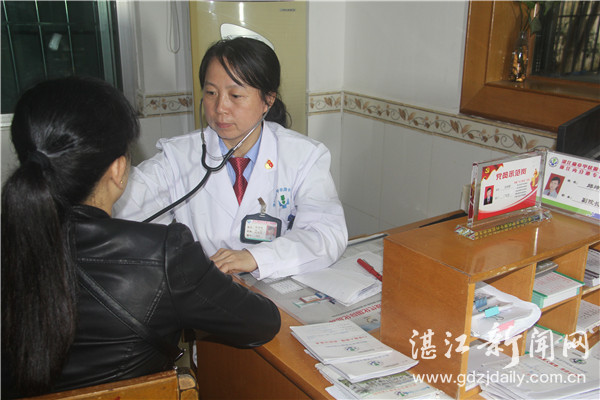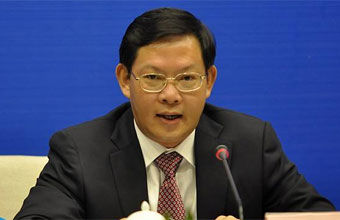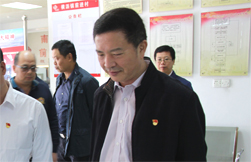Home> News
NPC deputy advocates better grassroots medical services
Liu Xiaoquan, a Zhanjiang deputy to the second session of the 13th National People's Congress, has called for improving grassroots medical service.
In recent years, many people have complained about limited medical resources, high medical expenses, and strained patient-doctor relationships.
Most high-quality medical resources are concentrated in big hospitals. People flock to these hospitals to compete for a bed, while hospital employees feel overwhelmed by their workload. Low-level medical institutions, without advanced equipment, high-level experts, or a full range of drugs, receive few visitors.

A doctor auscultates her patient at the Mazhang Thyroid Specialized Hospital. [Photo/gdzjdaily.com.cn]
To solve the issue, Liu suggested rolling out preferential policies related to housing, enrolling children in schools, and salaries to attract more high-caliber talents to grassroots medical institutions. She also proposed increasing subsidies for the purchase of medical devices.
A hierarchical medical treatment system, in which medical institutions at various levels receive patients according to the degree and urgency of the diseases they have, is regarded as a crucial part of the solution to insufficient and unbalanced medical resources. The medical insurance reimbursement rate for grassroots medical institutions is expected to increase.
Liu also stressed the importance of training doctors to work at low-level hospitals in order to improve the quality of grassroots medical services and regain the confidence of the public.

 Print
Print Mail
Mail 5G construction supports Zhanjiang's high-quality development
5G construction supports Zhanjiang's high-quality development
 Acting mayor inspects project construction in Xuwen, Leizhou
Acting mayor inspects project construction in Xuwen, Leizhou Zhanjiang island an "egret paradise"
Zhanjiang island an "egret paradise"  Dancing egrets add vitality to Xiashan
Dancing egrets add vitality to Xiashan